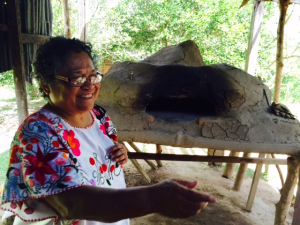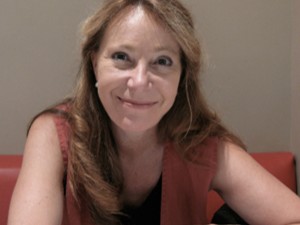The Holistic World of Human Rights
Following the recent launch of our guide Funding Indigenous Peoples, GrantCraft hopes to highlight increased content on partnering with this population in our resources. Have a story to share? Log in and visit "Share Your Wisdom" on your personal dashboard.
When Myrna Cunningham smiles, the whole world lights up—shining her compassion, insight, and expertise into the dark corners where human rights’ abuses are often hidden or buried. For the past five decades, she has dedicated her life to the world of human rights. Among her many roles, Myrna works as a consultant to Tamalpais Trust, which was created in 2012 as a 20-year grantmaking initiative to benefit indigenous-led organizations.
Rooted in her Miskito culture and land-base which spans the Atlantic-Caribbean coast of Nicaragua and Honduras, Myrna’s journey began with an academic scholarship to a Catholic school along with two other “disadvantaged” girls. “There was nothing else to do but study,” she says, “and the nuns gave me special attention.” Ever since, she has been studying and giving special attention to the fields of education and international human rights.
Myrna first became a grade school teacher, then the first Miskita woman doctor in Nicaragua. Her everyday humility belies a demanding career in which she holds several high-level public positions at once. In her home city of Porto Cabezas, nearly every person she meets on the street greets her with a warm hug and family news. More often than not she will acknowledge that she birthed this person or their daughter or son. She has six children of her own and many grandchildren at home now too. 
As the current chair of the Association for Women’s Rights in Development (AWID) and an international negotiator-representative for many different organizations, she is not home very often these days. Myrna is a traveling global activist defending and advocating for human rights of all kinds: Indigenous rights, workers’ rights, land rights, LGBT, disability, gender equity, inter-cultural, local, and international. She shows up all over the world looking fresh and serene, dressed beautifully in a rainbow of colors. She smiles and laughs a lot, tirelessly facilitating and participating in human rights meetings. You’ll find her some days in glass, urban towers of power; others in rural village plazas or walking migratory trails of pastoralists moving with their camels toward water.
One of her greatest strengths is patience—the quality that allows her to painstakingly guide the writing (and endless rewriting) of human rights policy documents, vision statements, and peace agreements. One of her proudest moments came when she filed and won her own human rights lawsuit against the U.S. Government during the Contra-Sandanist civil war in Nicaragua. Her victory resulted in the expansion of human rights law to include rape when it is being used as a weapon of war. She was represented by attorney William Kunstler of the Center for Constitutional Rights.
Myrna’s knowledge has proven invaluable in our work to build the capacity of Indigenous-led organizations. The Trust’s approach to grantmaking—human rights as the unifying value system of caring for the world in its wholeness (just as Myrna does)—is the heartline of our vision and mission. We strive for our grants to be congruent with the needs and priorities set forth by Indigenous people themselves.
We value our partners at RSF Social Finance, where the grants are awarded through a donor-advised fund. Their grants management expertise and administrative due diligence make it possible for us to be a global funder: our grant awards reach Indigenous Peoples in a total of 29 countries. The impact we are having is part of a highly energized synergy of Indigenous movements: human rights, land rights, language and culture, food sovereignty and agroecology, climate mitigation, gender empowerment and saving sacred sites. We work in collaboration with several other funders—especially The Christensen Fund, The Swift Foundation, and NoVo Foundation. Plus, we find it effective to be active members in philanthropic affinity groups: the Consultative Group on Biodiversity, EDGE Funders Alliance, and theInternational Funders of Indigenous Peoples.
The greatest joy of our work at Tamalpais Trust is seeing and being in relationship with Indigenous Peoples themselves, as they are emerging as the decision-makers in philanthropy. A new four-year grantmaking initiative, “The Indigenous Ways of Knowing and Learning,” was created and nested at RSF in 2014 under the direction of Indigenous leaders from nine countries. It’s a learning partnership—soliciting, reviewing, and recommending grants to Indigenous-led organizations around the world. They have just completed their first round of grantmaking, and we are hoping to share their learnings with the wider field of philanthropy very soon.
This post originally appeared on Exponent Philanthropy's blog, PhilanthroFiles. It is the second in a series curated by the International Human Rights Funders Group (IHRFG), a global network of donors and grantmakers committed to advancing human rights around the world. The series will explore the ins and outs of supporting human rights as a funder with few or no staff. Read the first post in the series here.

